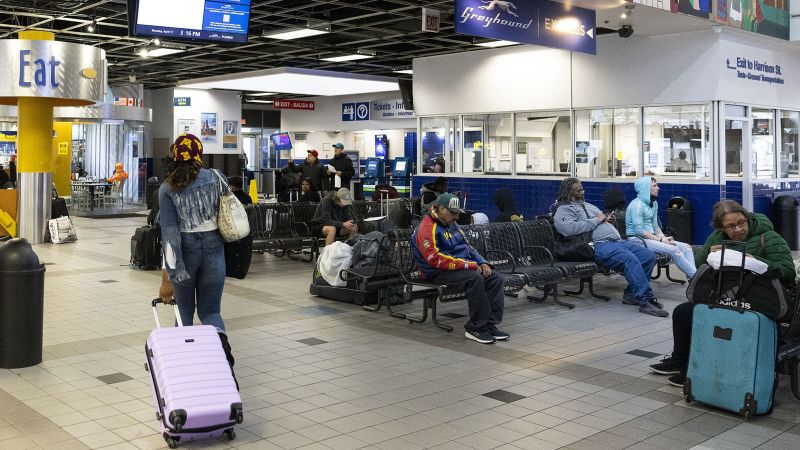Chicago, America’s third-largest city, is in danger of losing its only intercity bus terminal, which could have severe impacts on low-income, elderly, and minority travelers who rely on this mode of transportation. Greyhound’s lease for the terminal is set to expire, and there are no proposals for an extension at the moment. If the terminal closes, not only Greyhound but other bus lines operating from the terminal could also be forced to leave. City leaders and Greyhound are working to find alternative solutions to ensure continued service.
The closure of the intercity bus terminal in Chicago would make it the largest city in the Northern Hemisphere without such a facility. The terminal serves over 500,000 passengers annually, with a large percentage of Greyhound passengers earning less than $50,000 per year and being minority riders. The closure would disrupt the web of interconnected bus routes that allow passengers to travel between several thousand stops with a single ticket. Curbside service is not a sufficient replacement for a dedicated terminal, especially for travelers needing amenities like bathrooms, food, and shelter during layovers.
The closure of the terminal would impact travelers like Allen James Henry, Jr., who find dignity in having a safe and comfortable place to wait during layovers. Without the terminal, travelers would be left waiting on the street, especially during harsh weather conditions. Intercity buses are often the only transportation option for reaching smaller towns without train stations or airports. While advocates have been sounding the alarm about the risks of losing the terminal, the closure would accelerate the crisis in intercity bus service in the United States, as companies have been cutting service and closing terminals in recent years.
Greyhound, owned by Flix Mobility, has sold its terminals to investors for lucrative redevelopment, leading to closures and service disruptions in cities like Chicago. The closure of the terminal comes at a time when cities have lost nearly one-third of intercity bus service between 1960 and 1980 and over half between 1980 and 2006. Some transit advocates argue that intercity buses should be treated as a public utility, with more government support to ensure uninterrupted service. Calls are growing for a publicly owned bus terminal in Chicago, similar to models in other cities like Milwaukee and Boston, with support from state and federal governments.
Advocates are pushing for increased investments in intercity bus travel and infrastructure, as private companies have been relied upon to provide essential services for low-income passengers. The closure of terminals in cities like Philadelphia has highlighted the challenges faced by travelers when terminals are moved to inaccessible locations or replaced with curbside service. Ultimately, the goal is to establish a public intercity bus terminal in Chicago, similar to successful models in European cities like Atlanta. With support from government agencies and a focus on providing essential services to all travelers, advocates hope to improve the intercity bus network in the United States.













